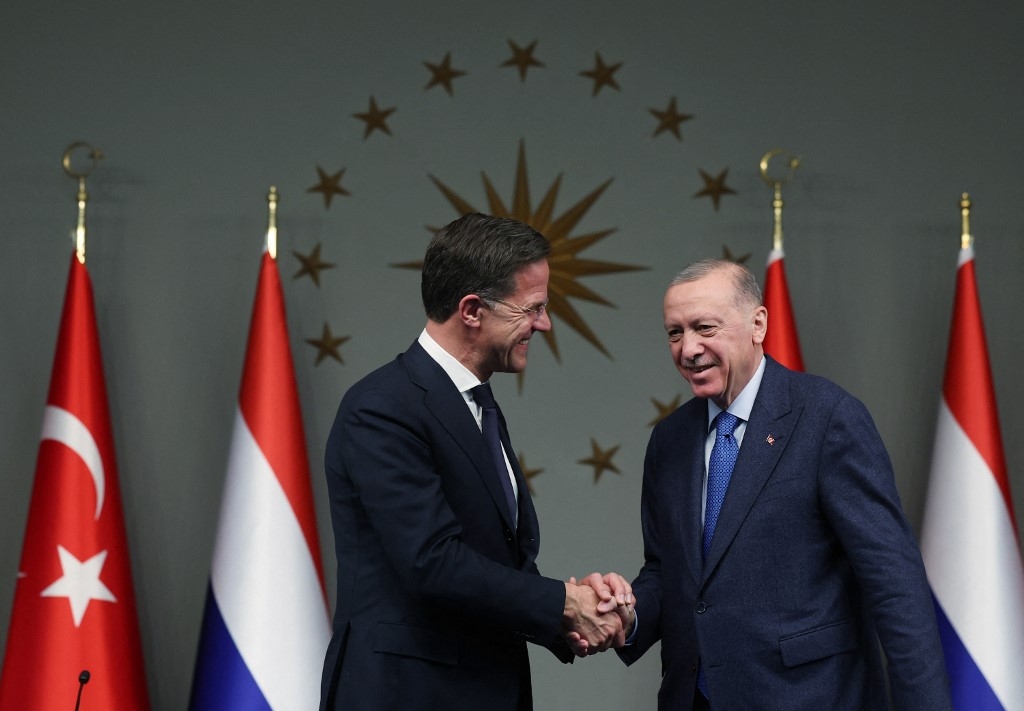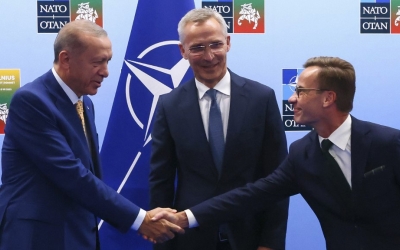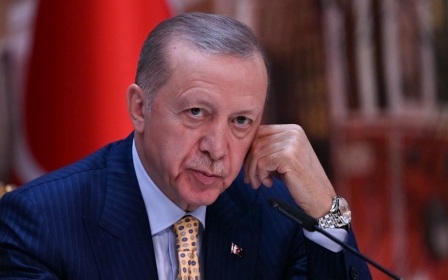Turkey backs Dutch PM Mark Rutte as the next Nato chief

Turkey told fellow Nato members on Monday that it supports outgoing Dutch Prime Minister Mark Rutte's bid to be the next Nato chief.
Two sources familiar with the issue told Middle East Eye that Turkey backs Rutte for the secretary-general position, the new term of which officially begins in October. Semi-official Anadolu Agency also reported the same development on Monday, citing sources.
Rutte met Turkish President Recep Tayyip Erdogan on Friday, who was guarded about the Dutch prime minister's candidacy in a joint presser, only wishing him “good luck” on his new journey.
Erdogan has long standing complaints regarding Nato’s comparatively lack of interest in the activities of the Kurdistan Workers’ Party (PKK), categorised as a terrorist group in Turkey, especially in Syria. He also criticises fellow Nato members for imposing arms sale restrictions on Ankara due to its military operations in the region.
Rutte told Dutch media following the meeting that he didn’t make any promises to the Turkish president.
Stay informed with MEE's newsletters
Sign up to get the latest alerts, insights and analysis, starting with Turkey Unpacked
Ankara insiders say Turkey expects Rutte not only to focus on Russia but also on terror groups and consider the sensitivities of non-EU countries like Turkey in Nato's decision making process.
“Turkey is believed to have conveyed to the candidates its expectations from the future secretary general to ensure an end to the restrictions imposed by allies on each other in the field of defence and to monitor the implementation of commitments on the fight against terrorism”, one Ankara insider told MEE, speaking on condition of anonymity because of the the issue's sensitivity.
In addition to Turkey, Rutte has to convince Romania, Slovakia and Hungary to support his candidacy.
Romania, which has its own candidate, considers that Eastern European countries have long fared poorly when it comes to the distribution of top jobs in Europe. Slovakia agrees.
Rutte also has had an uneasy relationship with Hungarian Prime Minister Viktor Orban for years.
"The most resistance is expected from Hungarian Prime Minister Orban,” Dutch broadcaster Nos reported on Monday.
Nos says Rutte might be able to convince Orban with the help of the US in July, when Nato will celebrate its 75th anniversary in Washington DC with a leaders summit.
Relations between the Turkey and the Netherlands were fraught for years.
Rutte had long criticised Erdogan's approach to domestic politics and his record of human rights abuses, and efforts to stifle the press. Additionally, Dutch officials have been displeased by Turkey's military involvement in Libya, Syria and Azerbaijan.
Tensions reached a critical point in 2017, when the Netherlands barred Turkish politicians from campaigning on its soil. This led to the expulsion of a Turkish minister by Dutch authorities, after which Erdogan accused Amsterdam of engaging in Nazism. Rutte described Erdogan's accusations as an overreaction.
The relations however were repaired over time, especially after Rutte’s official visit to Turkey in 2022.
Middle East Eye delivers independent and unrivalled coverage and analysis of the Middle East, North Africa and beyond. To learn more about republishing this content and the associated fees, please fill out this form. More about MEE can be found here.





